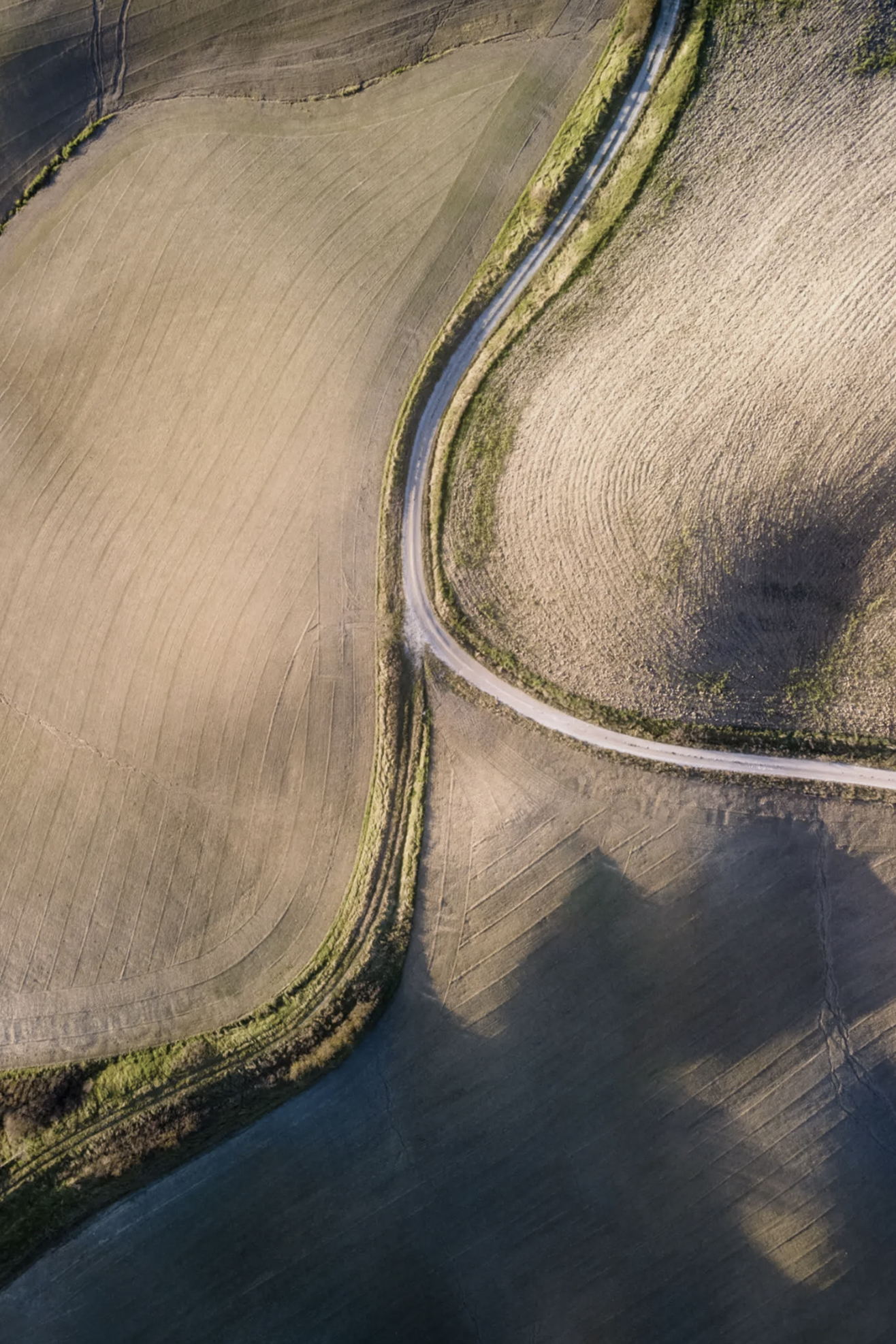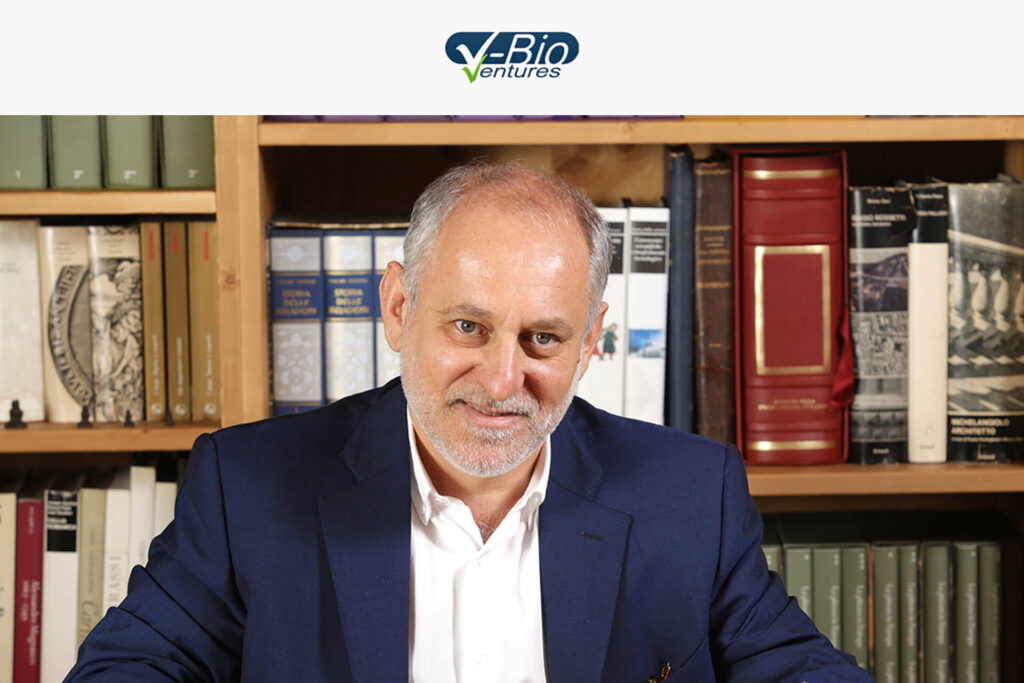

Header image: Paolo Michieli (courtesy of AgomAb Therapeutics).
Ghent-based AgomAb Therapeutics recently raised a Series B of $74 million, the largest round ever for a Belgian biotech in pre-clinical phase. Based on argenx’ technology, the company is developing HGF-mimetic antibodies for regenerative medicine. AgomAb has come a long way since it’s foundation in 2017 and has been pegged by many as one of the future stars of Belgian biotech.
It was 2018 and Katja Rosenkranz and Paolo Michieli were on a road trip. Rosenkranz’ VC fund, V-Bio Ventures, had just supported the founding of AgomAb Therapeutics, and the pair were on a mission to raise funds for the regenerative medicine company. With Rosenkranz at the wheel, Michieli in the passenger seat beside her, they began their tour with Bio€quity Europe in Ghent. Here, the pair would begin the extraordinary journey that this year culminated in a record-breaking $74 million Series B.
A company long in the making
As is often the case, AgomAb’s story began long before the company’s actual foundation. Back in the 1990s, Paolo Michieli had been a researcher at the National Cancer Institute of the NIH, in the lab that discovered that MET is the Hepatocyte Growth Factor (HGF) receptor. HGF plays a vital role in many biological processes, including cell growth and division, making it important for organ regeneration and wound healing. When HGF was first discovered, there was a lot of excitement over the tremendous therapeutic promise of a growth factor capable of restoring damaged tissue. However, the excitement soon turned to frustration, as Michieli explains:
“HGF has a half-life of about four minutes and breaks down very quickly in the body. This makes it challenging to manufacture, and difficult to use in a clinical setting.”
I learned of the magnificent potential of the argenx llama antibody platform [and] I realized we could use these antibodies as HGF-mimetics in regenerative medicine. – Paolo Michieli, AgomAb Therapeutics
What scientists needed was an HGF-mimetic; something that would replicate the effects of the growth factor, but with better drug-like properties. For lack of a clear solution, research into HGF as a potential regenerative therapy floundered. Then, around 2010, Michieli received a call:
“As an expert in growth factor biology, I was contacted by argenx for a collaboration on their MET program in oncology, which I accepted. During this period, I learned of the magnificent potential of the argenx llama antibody platform. I discovered that, in addition to the antagonistic antibodies being studied by argenx for oncological purposes, some of the antibodies were actually agonistic. I realized we could use these antibodies as HGF-mimetics in regenerative medicine. We subsequently agreed on a licensing deal with argenx which led to the foundation of AgomAb”
Re-founding in Belgium
This brings us to 2017: Michieli and his Italian colleagues had been investigating the potential of these HGF-mimetic antibodies and were extremely pleased with what they were seeing. To raise funds for the fledgling company, Michieli packed a suitcase and returned to Belgium, where he was introduced to several VCs by his friends at argenx.
“The first investor I was introduced to was Christina Takke,” Michieli says. “V-Bio Ventures was the first pitch I ever completed in my life! Evidently the pitch went well, because that very evening we got a call to say V-Bio was intrigued by our work. They were very fastidious about the due diligence however: before committing to the seed round, they provided us with a convertible loan to conduct a series of de-risking studies. We designed these experiments together to test the safety of the approach; once we had obtained convincing data, V-Bio provided seed financing and in parallel started the preparations for a large Series A round. With argenx and our lead investor both based in Ghent, we decided to found AgomAb in Belgium to take advantage of the local ecosystem, which offers an ideal milieu for biotech development and is particularly rich in antibody expertise.”
V-Bio really is unique in taking on these ‘earlier-than-early-stage’ projects, providing academics like Paolo with the practical support they need while the company is still getting set up. – Katja Rosenkranz, V-Bio Ventures
The company initially operated in stealth mode, with V-Bio supporting Michieli by taking care of the practical day-to-day management tasks. Katja Rosenkranz took on the role of interim CEO in the lead up to AgomAb’s Series A, creating the pitch deck and financial plan, and making vital introductions to investors and the people who were to become AgomAb’s future executive team. Behind the scene, Tim Knotnerus was also supporting the company since 2017 and by early 2019 the V-Bio team convinced him to join as the CEO going forward. Soon after the series A closing, CDO Torsten Dreier was also brought on board. Rosenkranz recalls:
“We reached out to Torsten, co-founder and at that time CDO of argenx, to see if he knew someone who could help AgomAb with its CMC. Instead of suggesting someone else, he actually came back and said: ‘Hey, I would like to be part of this story myself!’.”
From A to B
With Knotnerus and Dreier onboard, AgomAb finally came out of stealth mode with a $25 million Series A round in 2019. Supported by a strong international investor syndicate, the company expanded its work on testing their HGF-mimetic antibodies in a range of indications. Starting with liver fibrosis, AgomAb’s exploratory pre-clinical activities have demonstrated the potential of its technology in numerous prospective applications. The antibodies have shown promise in tissue protection, repair and even regrowth in a large variety of pre-clinical efficacy models.
Success stories in the making – like AgomAb – are the reason why we’re so committed to supporting the translation of great science into start-ups! – Katja Rosenkranz, V-Bio Ventures
It’s this extraordinary potential and versatility of the platform that had investors excited enough to pitch in the $74 million raised in the Series B, despite the fact that the company has yet to move into the clinic. With these fresh funds onboard, AgomAb is currently conducting IND enabling studies for its lead-compound – a full MET agonist. Although the specific indications are still being kept under wraps. It’s safe to say, the company has come a very long way in a short amount of time and is far from done growing. Reflecting back on that fateful road trip in 2018, Katja fondly reminisces:
“I am so pleased to have seen AgomAb come so far over the past five years! It was one of the first dossiers on my desk when I started with V-Bio, and the roadshow with Paolo was a real bonding moment for both of us. It’s such a privilege, being part of the founding of a company with such a huge potential to improve people’s lives. But V-Bio really is unique in taking on these ‘earlier-than-early-stage’ projects, providing academics like Paolo with the practical support they need while the company is still getting set up. It is amazing to see what the team has accomplished since then and bringing on board the new set of US investors provides further optionality for the company going forward. Success stories in the making – like AgomAb – are the reason why we’re so committed to supporting the translation of great science into start-ups!”
